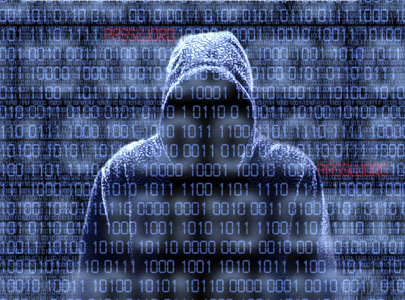Scholars collaborate on security issues and solutions
SMU expertise in cybersecurity is an example of how scholars share their knowledge to solve global problems.

SMU expertise in cyber and national security is an example of how scholars in different disciplines are sharing their knowledge to solve global problems.
“SMU has a special culture that enables students to have extraordinary access to our faculty members who are advancing the latest innovations in global security, cybersecurity, geopolitics and domestic policy studies,” said Steven Currall, SMU provost and vice president for Academic Affairs. "Students and faculty members work in close collaboration to address many of the world's crucial challenges through new research discoveries and by engaging in service projects for technology companies, policy makers and the diplomatic community."
SMU's cybersecutity experts include Frederick R. Chang, director of the Darwin Deason Institute for Cyber Security, the Bobby B. Lyle Centennial Distinguished Chair in Cyber Security and professor of computer science and engineering in the Lyle School of Engineering. He also is a senior fellow in the John Goodwin Tower Center for Political Studies in SMU’s Dedman College and a distinguished scholar in the Robert S. Strauss Center for International Security and Law at the University of Texas at Austin. His career spans positions in the private sector and in government, including his service as former director of research at the National Security Agency. For his achievements, he has been named a member of the prestigious National Academy of Engineering.
Christopher Jenks, director of SMU's Criminal Justice Clinic and assistant professor at Dedman School of Law, is a Fulbright Scholar who teaches and writes on the law of armed conflict and criminal justice. Before joining SMU, he worked at the Pentagon. He was a judge advocate, serving as chief of the international law branch of the U.S. Army, from which he retired after a 20-year career. As a military prosecutor he was lead counsel on the Army's first counterterrorism case. He is co-author of the textbook, The Law of Armed Conflict, and co-editor of a forthcoming war crimes casebook,
Robert Jordan is Diplomat in Residence and adjunct professor in the Tower Center for Political Studies. Serving as U.S, ambassador to Saudi Arabia from 2001 to 2003, he took charge of his mission in the wake of the attacks of Sept. 11, 2001. at a critical time in U.S.-Saudi relations. He was a partner in the international law firm Baker Botts LLP for many years and headed the firm's Middle East practice based in Dubai. He is the author of Desert Diplomat: Inside Saudi Arabia Following 9/11.
Joshua Rovner is Distinguished Professor of International Politics and National Security, associate professor of political science and director of studies at the Tower Center for Political Studies. He writes extensively on strategy and security. His recent book, Fixing the Facts: National Security and the Politics of Intelligence, is a wide-ranging study about how leaders use and misuse intelligence.
Recent programs have included a Tower Center panel discussion with Jenks and Rovner on the ethical and legal questions of employing autonomous weapons systems, or "killer robot